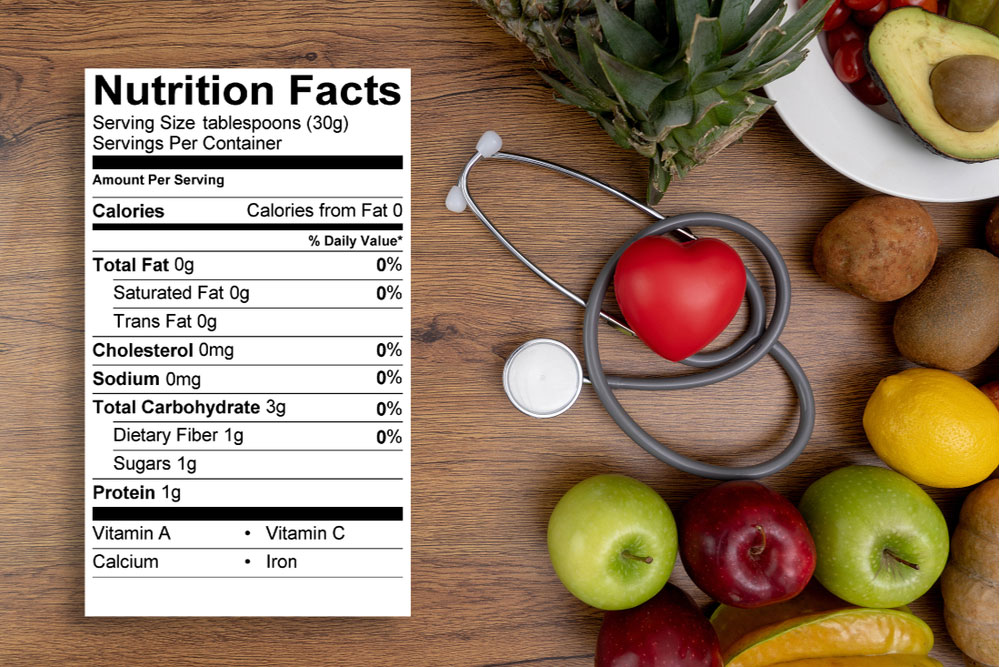When the COVID-19 pandemic hit last year, it jolted everyone into realising that building your immunity and maintaining it aren’t things you can start one day and expect to show results the very next day. Equipping your immunity to fight all sorts of diseases, including seasonal viral and bacterial infections, requires dedication and discipline starting from childhood itself. Nutrition plays a key role here, so it’s vital that you get proper education about it so that you can look after your health, and that of your family’s, throughout your life.
We talked to Dr Eileen Canday, the head of the Nutrition and Dietetic Department at Sir HN Reliance Foundation Hospital and Research Centre, about the basics of nutrition education, and here’s what she had to say.
Why you need education about nutrition
At the very outset, you need to understand why nutrition education is so important not just because of the current pandemic, but for the sake of a healthy and long life. Dr Canday says that nutrition education helps to build the capacities for people to
• Feed themselves and their families well,
• Get the right foods at the right prices,
• Prepare healthy foods and meals which they enjoy,
• Recognize poor food choices and resist them, and,
• Teach their children and others about healthy eating.
As you can tell, these capacities can help you in your everyday life and ensure that you get proper nutrition to fend of diseases too.

Why women need to know about nutrition
In a study published in Current Developments in Nutrition in 2019, titled Who is the Woman in Women’s Nutrition? A narrative review of evidence and actions to support women’s nutrition throughout life, researchers revealed that that the focus of nutrition education for women in middle- to low-income countries remains on those who are pregnant, lactating or have young children. This focus on women as only mothers fails to address the interrelation between nutrition and lifelong problems, and can therefore be disadvantageous. Targeted nutrition education, the study concludes, should be provided to women across all ages, including adolescents, women of reproductive age, nulliparous women (the medical term used to describe women who haven’t given birth, ever), and older women.
Dr Canday agrees and recommends that nutrition education should target various aspects during each stage of a woman’s life. “Nutrition education should target growth and development in pre-pubescent girls, while after menarche (when your first period starts) and during the teenage years, the focus on nutrition should gradually shift to hormonal balance and regulating menstrual cycles,” she says. Once you master these, the focus during your 20s and 30s should be on a “healthy lifestyle to prevent lifestyle disorders” like obesity, high cholesterol, hypertension and heart disease. For women who are pregnant, Dr Canday says that “eating a healthy, balanced diet will help the mother feel well. The food the mother eats is the baby’s main source of nourishment, so it’s critical to get all of the nutrients she needs.” Once you reach perimenopause and menopause, the focus of nutrition should once again shift to dealing with the changes your body is going through. “Incorporating healthy foods and good quality sources of protein into your diet may help relieve some menopause symptoms,” she adds.
Nutrition for children, a lifelong pattern of growth
When it comes to nutrition education for children, schools as well as the home has a huge role to play. “Nutrition education is a vital part of a comprehensive health education program and empowers children with knowledge and skills to make healthy food and beverage choices. Schools play an important role in helping students establish healthy eating behaviours by providing them with consistent and accurate messages about good nutrition, and teach them ways to learn about and practice healthy eating,” Dr Canday says. And how can healthy eating benefit children? She says it can:
• Stabilize their energy
• Improve their minds
• Benefit their moods
• Help them maintain a healthy weight
• Help prevent mental health conditions, including depression, anxiety, and ADHD
“Plus, having a healthy diet and focusing on nutrition are some of the simplest and most important ways to prevent the onset of disease,” she adds. “Healthy eating can help prevent many chronic diseases. These include obesity, heart disease, high blood pressure, and type 2 diabetes.”

Getting the right information is key
Clearly, getting an education about nutrition and how it shapes your life is urgent. But, it’s important to remember that your sources of information matter a lot, especially in an era where there’s way too much information available online and fad diets go in and out of trend every week. Dr Canday says that instead of relying on or acting upon just any information available online, a qualified dietician is the most appropriate person to talk to.
“A dietician is an expert on food who can interpret the available information, evaluate its authenticity, and deduce if there is any scientific reliability on the same,” she says. “A qualified dietician can help an individual in many ways such as:
• Influence the food choices and eating habits of an entire family.
• Clear misconceptions one has about food, and give clear direction about what to eat, how to eat and how much to eat.
• Can plan a healthy, balanced diet for normal, healthy individuals, and help prevent disorders such as diabetes, obesity, osteoporosis, etc.
• Plan diets to facilitate quick recovery in various other medical conditions.
• Help individuals gain or lose weight in a healthy way without any nutritional deficiencies.
• Help athletes, children and those interested in fitness to eat better and healthier to achieve their goals and improve their performance.
Dieticians and nutritionists are, therefore, experts you should consult regularly for your dietary and nutritional needs. This apart, Dr Canday recommends that you should follow the general dietary tips given below:
• Your diet should include a variety of foods, including energy-rich foods, meat, milk, legumes and pulses, and variety of fruits and vegetables to improve antioxidant levels in the body.
• Consider supplementation with Vitamin C, zinc, Vitamin A, B6, D, E, iron, folate and fiber. This supplementation should be done if you’re not getting enough from the diet as advised by a qualified healthcare professional.
• The use of culinary herbs like kalonji (onion seeds), haldi or turmeric, ajwain (carom seeds), ginger, oregano, sage and cinnamon may be beneficial.
• Ensure that you get enough sleep, reduce stress, exercise regularly, avoid intake of alcohol and tobacco products.